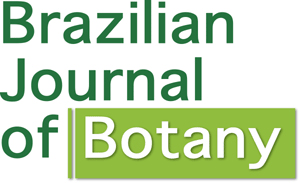Somatic embryogenesis represents a valuable tool for the studies on the basic aspects of plant embryo development. Today this process is used as a potencial technique for large-scale plant micropropagation although, so far, it has been applied to only a small number of species. However, when somatic embryos are malformed they are considered economically useless. In Acca sellowiana (O. Berg) Burret, an important fruit-producing crop, large amounts of anomalous somatic embryos (76.3%) were found just after 40 days of culture of explants in a 2,4-D containing medium. Among the anomalous forms found in the cotiledonary stage, 12.2% consisted of fused embryos, 40.4% displayed fused cotyledons, 13.0% presented supernumerary cotyledons, and 10.7% showed absence or poorly developed cotyledons, including those without the shoot apical meristem. Histological analyses indicated that the altered embryos were formed either directly from cotyledons, hypocotyl and radicle of the zygotic embryos used as explants, or indirectly from calli formed from these tissue parts. It is suggested that the formation of anomalous somatic embryos, as well as a low frequency of conversion into emblings reflect physiological and/or genetic disturbances triggered by the presence of 2,4-D in the medium. In vitro experimental alternative approaches are discussed in order to lessen the occurrence of malformed somatic embryos.
2,4-D; feijoa; morphohistological analysis; somaclonal variation; somatic embryogenesis











